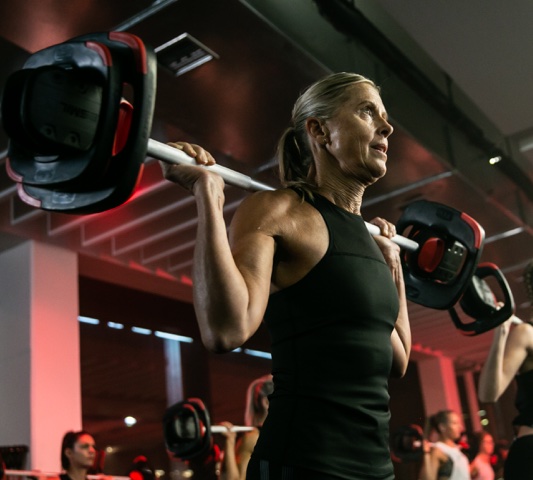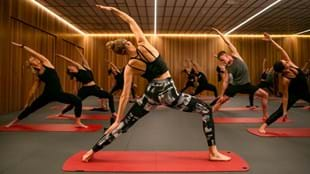Fitness in your forties is key

Two new studies have provided further evidence that exercise in middle age can lead to a longer healthier life. In the first study of 51 to 70 year-olds, researchers considered the long-term exercise habits of 315,059 individuals. Those who had worked out consistently since youth were 42 percent less likely to die of heart disease and 14 percent less likely to die of cancer than inactive individuals. Remarkably, those who were previously inactive adults but picked it up in their forties saw the same benefit – they were 43 percent less likely to die of heart disease and 16 percent less likely to die of cancer. The second study focused on the muscle strength of 4681 American adults with an average age of 43. Researchers found those with moderate muscle strength were 32 percent less likely to develop diabetes – interestingly, higher levels of muscle strength didn’t lead to lower risk. Learn more about the association between muscular strength and the risk of type 2 diabetes.
Learn more about the association between muscular strength and the risk of type 2 diabetes.
Proof popping pills won’t protect you from a poor diet

Studies show the majority of American adults do not eat enough fruits and vegetables, and 75 percent of US adults take some form of nutritional supplement to make up for it. However, despite many believing that supplements are a one-step way to fuel their body with necessary nutrients, new research reveals that supplements cannot replace the benefits of a balanced diet. The research highlighted how vitamin A, vitamin K, zinc and copper were all linked to a lower risk of early death but consuming these nutrients in the form of dietary supplements did not improve health and longevity – it seems a well-balanced diet of real food is the best way to go.
Find out more about the controversial health benefits and risks of dietary supplements.
Too much sitting can hinder your exercise efforts

A cross-sectional study of 51,896 participants showed the time we spend on our bottoms is on the rise. In the nine years since 2007 the estimated total sitting time increased from 7.0 to 8.2 hours per day among adolescents and from 5.5 to 6.5 hours a day among adults. While we’ve long known this is a problem – prolonged sitting has been associated with increased risk of multiple diseases including obesity, cardiovascular disease, cancer and diabetes, now a new study of ten regularly active students highlights another issue. The study – which involved restricting the active students to sedentary behavior before putting them through a simple exercise program – highlighted how prolonged sitting can make you resistant to the metabolic improvements that result from aerobic exercise.
Learn more about inactivity induced resistance to metabolic benefits.
Why avoiding the sunshine can be risky too

Slathering on the sunscreen and avoiding sun exposure have long been considered the safest ways to cut the risk of skin cancer. But now, fascinating new findings suggest that avoiding the sun too much might also be associated with health risks. A 20 year-long Swedish study of 29,518 women has shown that those with active sunlight exposure habits experience a lower mortality rate than women who avoid sun exposure. It’s important to note that the longer life expectancy amongst women with active sun exposure habits was related to a decrease in cardiovascular disease and non-cancer mortality – a high level of sun exposure is still associated with an increased risk of skin cancer.
Learn more about how avoiding sun exposure can put your health at risk.
If you want more health and fitness inspiration simply sign up to Fit Planet and get the freshest insights and advice straight to your inbox.








